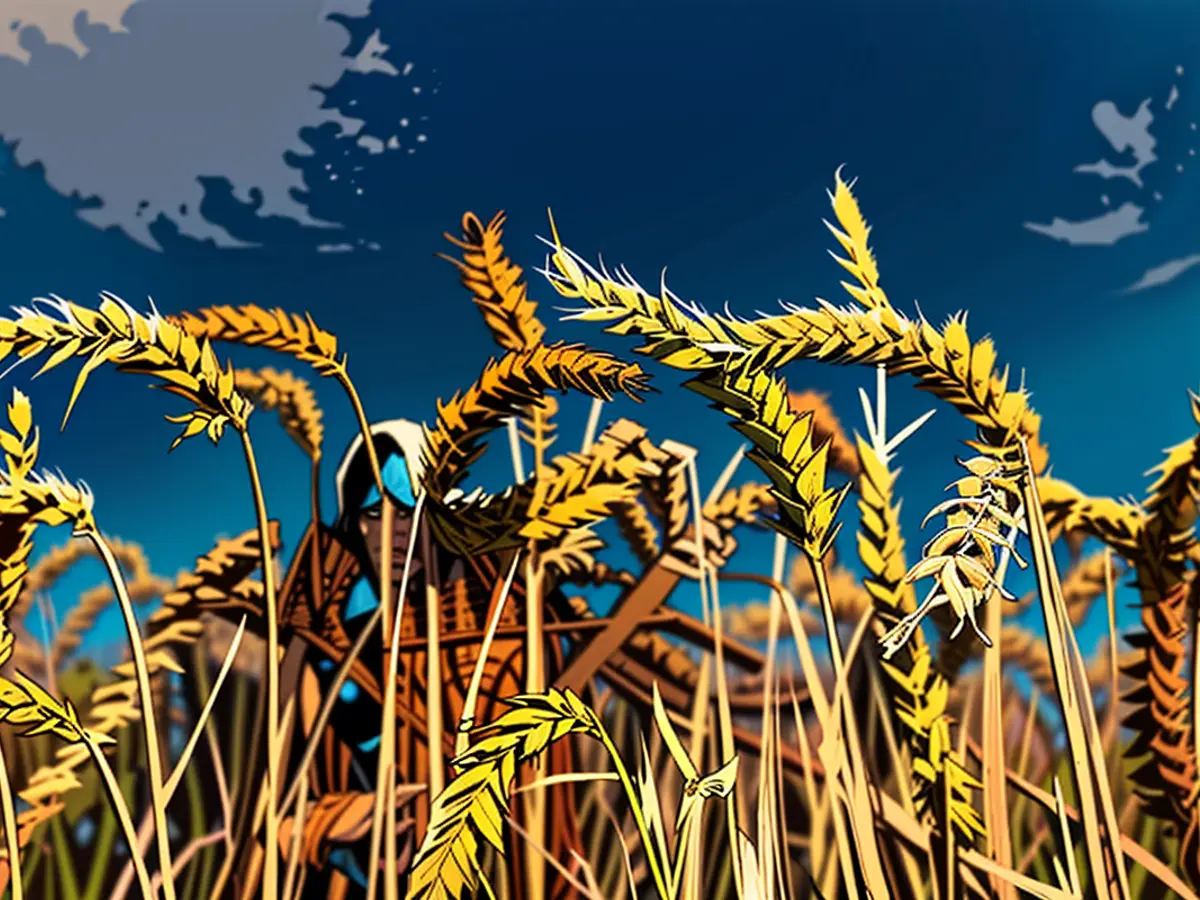Agriculture - Farmers' Association: Rain and Frost lead to weak harvests
Persistent rain has led to weak yields in the harvest this year, according to the Bauern- und Winzerverband Rheinland-Nassau. "We have had relatively good years in the last two years," said Verbandspraesident Marco Weber in Miehlen. "But exactly in this year we have the opposite. We have poor quality, poor yields and we also have poor market prices."
The basic conditions for the weather and climate did not match this year, Weber stated. Since October, there have been heavy rains, and in the spring there were weather capricions such as late frosts and heavy rain. The lack of sun ultimately led to farmers in almost all areas having very weak yields. However, Weber also expressed some optimism: The catastrophic harvests from the previous drought years were not comparable to this year. "It is a snapshot of an economic year," he said. "We hope for better framework conditions."
Mediocre wheat harvest
The beginning of the wheat harvest was delayed in some regions of Rhineland-Palatinate due to the rainy autumn, according to the Bauern- und Winzerverband Rheinland-Nassau. The overall wheat harvest was therefore mediocre. The results of winter rye were average, but good quantities of spring barley had already been threshed.
Rapeseed develops surprisingly positively, it was reported. Yields of up to four tons per hectare were possible. Corn grows well: Rain and high temperatures are beneficial to it.
Concerns in viticulture
Things look different in viticulture. Massive frost damage occurred at Mosel and Mittelrhein at the end of April. The growth was hindered by hail, heavy rain, and cold wet weather, according to the Verband. The frost also affected the fruit growing industry in this year. In northern Rhineland-Palatinate, approximately 25% failure was to be expected for apple cultivation. For early varieties of strawberries, some farmers reported losses of up to 70%. However, the Verband was satisfied with the prices for strawberries.
The Bauern- und Winzerverband Rheinland-Pfalz-Sued also drew a mediocre balance of the past harvest year last week. Too much rain and a lack of sun prevented better results in this region as well. Notably, there was a clear North-South divide depending on rainfall amounts and soil properties. Farmers in Rheinhessen were satisfied with winter rye and winter wheat, and the outlook for winter wheat was optimistic. However, their colleagues in the south and southwest Palatinate reported disappointing results for barley and the first wheat deliveries.
- The persistent rain in Rhineland-Palatinate this year has resulted in challenges for agriculture, leading to weak yields and poor market prices, as mentioned by the Farmers' Association of Rhineland-Palatinate and Hesse.
- The heavy rain in the autumn delayed the beginning of the wheat harvest in some regions, resulting in a mediocre overall yield, as reported by the Farmers' Association of Rhineland-Palatinate and Hesse.
- Despite the challenges in the climate, rain and high temperatures have been beneficial for corn growth in the Rhineland region, according to the Farmers' Association of Rhineland-Palatinate and Hesse.
- Conversely, concerns have arisen in viticulture due to the weather conditions, with hail, heavy rain, and cold wet weather hindering growth, as stated by the Farmers' Association of Rhineland-Palatinate and Hesse.
- The Bauern-und Winzerverband Rheinland-Pfalz-Sud also reported mediocre results for their harvest year, citing too much rain and a lack of sun as the primary reasons for poor yields, particularly for barley and the first wheat deliveries.
- The Farmers' Association of Rhineland-Palatinate and Hesse remains optimistic for future harvests, hoping for better climate conditions to improve yields and market prices for farmers in the region.








